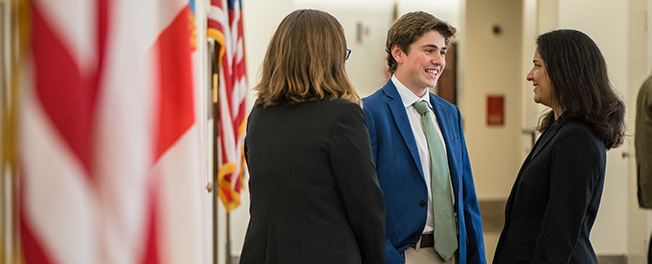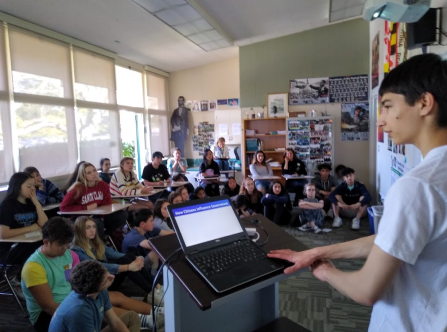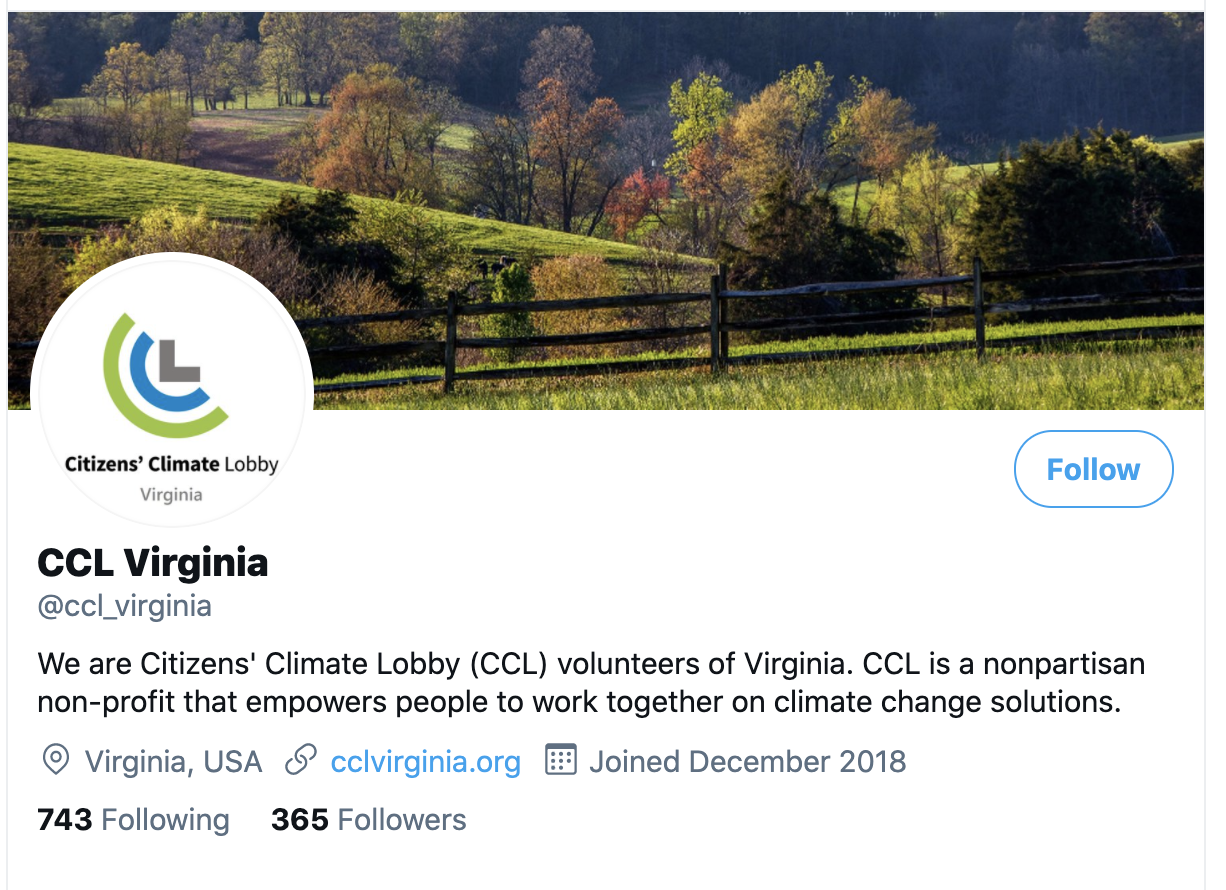
Record-Breaking Youth Involvement in CCL’s December Lobby Meetings
By Jess Wilber

A screenshot of the CCL Silicon Valley North Chapter’s virtual lobby meeting with Rep. Anna Eshoo, full of smiling youth.
The voices of young people have been powerful and abundant in the US climate movement. From the foundation of the Sunrise Movement in 2017 to the filing of the constitutional climate lawsuit, Juliana v. United States, youth-led organizations have led the fight for effective climate legislation. At CCL, our volunteers are mostly over the age of forty, with youth under 25 only recently reaching 18% of our overall membership. For youth under 18, the percentage is even slimmer. But while these young students may still be few, they are taking more action than ever before. A silver lining to the COVID-19 pandemic has been the opportunity for youth voices to shine in our lobby meetings. In December, 112 students under the age of 18 participated in meetings with their Members of Congress.
One key difficulty with engaging youth in CCL has been the significant barriers preventing youth attendance at CCL conferences and lobby days. Lodging and travel to DC are more expensive than most young people can afford on their own. While chapter fundraising, scholarships, and internship benefits have been effective for sending students in higher education and beyond to DC, we haven’t been able to support every student interested in lobbying on Capitol Hill. To make matters worse, internships and school-based scholarships are inaccessible to students under the age of 18, who also have to worry about the cost of a parent or guardian attending the event alongside them. As such, the virtual format of our December lobby meetings allowed more youth involvement than ever before.
CCL’s Youth Action Team works to provide students under 18 with the skills and knowledge they need to become effective climate advocates. Co-leader Sharon Bagatell explained that one of her team’s goals for 2020 was to get more young people involved in lobby meetings. To achieve this, they offered a special Youth Lobby Day Training, which was attended by 35 of the under 18 lobbyists. After the training, they worked to match youth with their district lobby teams across the country. One high school student attending a boarding school in Delaware before the pandemic was even able to Zoom into a lobby meeting from his home in South Korea. Sharon said of the process, “Everyone was so excited to have more young people involved in their meetings. It was hard work, but it paid off!”
Congresswoman Anna Eshoo (CA-18), one of the original co-sponsors of the Energy Innovation Act, has thoroughly enjoyed the increased youth involvement in her recent meetings with CCL. Karl Danz, the Liaison to her office since 2015, explained that over half the membership of his lobby team this year were high school students. Of the 19 volunteers present in his face-to-face December meeting with Rep. Eshoo, 10 of the participants were under 18.
One of these high school volunteers, Karishma Goswami, helped lead a Twitter Thunderclap in August. This social media campaign saw over 60,000 people urging their Members of Congress to protect younger generations by passing effective climate legislation in august of last year. Amazed by the powerful demonstration of youth voices, Rep. Eshoo chimed in with the following tweet: “Advocacy doesn’t have age requirements. Bravo to all the young people working to make a difference by calling on Congress to act on climate change. I’m proud to cosponsor H.R. 763 to protect our planet for future generations.”

Rep. Anna Eshoo’s tweet in support of CCL’s Youth Climate Thunderclap on Twitter.
According to demographic information collected by LegiStorm on the staffers employed by the 116th Congress, 55% of congressional staffers in the House and Senate were under the age of 30. That is why Bill Blancato, State Coordinator for South Carolina, thought he might see positive results by engaging volunteers with a closer proximity in age to the staffer his teams were meeting with. Indeed, he found that including students under 18 helped lobby teams connect with congressional staffers on a much more personal level. In a meeting for SC-05, he noticed that Rep. Ralph Normans’ staff were immediately drawn to the young people in his team. After the students gave their introductions, they realized that they actually shared mutual friends with the aid they were meeting with!
“CCL benefits from diversity, since so many of us are older white people,” Bill noted. “Young people help us diversify our membership and provide a unique energy to lobby meetings and preparation.” He also reflected on how youth can influence conservative Members of Congress specifically, a demographic that remains a target for CCL. “It is hard to discern a student’s political ideology based on their views on climate alone. Because these young people will be voting more and more, Republican offices needed to be reminded that there will be young conservatives building political will for climate action alongside their democratic peers.”
This past December, I experienced first-hand how effectively youth voices can influence their Members of Congress. In the OH-04 meeting with Rep. Jim Jordan’s staff, I led a team of six college students, one of whom was a young freshman at age 17. While we were joined by veteran lobbyists from the local Oberlin chapter, they took a backseat and let the students’ voices shine. During past meetings with Rep. Jordan’s office, we struggled to balance CCL volunteer and staff talking time. But this time, we had a balanced and dynamic conversation and were able to draw the young staffer out of his shell.
All of these success stories from young lobbyists were made possible by the low barriers to entry that accompanied the virtual lobby day format. Without concern for the costs of travel and lodging or the need for a guardian present, youth under 18 engagement in lobby meetings was at an all time high. As we look towards a future where effective vaccines, mask mandates, and social distancing allow lobbying on Capitol Hill to become a reality, we must keep in mind the difficulties that our young volunteers will once again face. Whether it be through local fundraising or the expansion of youth programs, we must remember how powerful and effective these young advocates are, and advocate on behalf of their inclusion in future lobby meetings.
Jess Wilber is a recent graduate of Oberlin College, where she majored in Environmental Studies & East Asian Studies and founded the CCL Oberlin College Chapter. In addition to serving as the International Outreach Intern and Great Lakes Community Representative, she is a contributor to CCL’s Youth Blog Writing Team.





